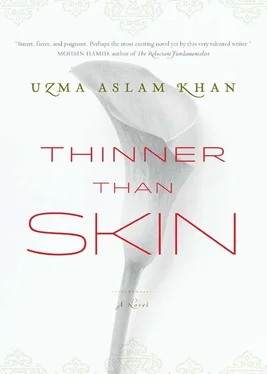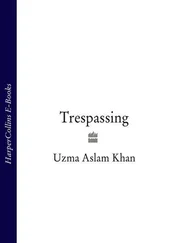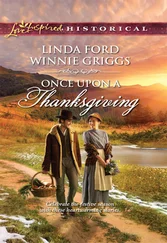I knew that in colonial times, the British considered it a pretty sort of wedge, this ear, nicely if incidentally squeezed between the more considerable Kashmir and the more incomprehensible, and feared, hill tribes of the west. And so they mostly left the valley alone. Today, most of the hotels, restaurants, and shops were run, though not owned, by Kashmiris and Sawatis. Even those who couldn’t read or own a television were keenly aware of what was going on, and where. They liked to say that the buffalo is as attuned to what lies behind as what lies ahead. Why else did shivers keep running up and down its spine? Why else did it keep sweeping its hide with the smack of its tail?
I’d noticed military convoys yesterday, soon after our arrival. It was unusual in this valley. I’d been too preoccupied to give this much thought. The trucks were as twitchy as buffalo tails, creeping up and down the valley’s spine, seeing nothing, fearing the worst. The whole country was teeming with convoys of one kind or another. So what? We were here to enjoy the place, even if we couldn’t enjoy the time.
A shadow flickered on the doorframe. There were other areas — the ceiling beams, the paneling by the bed — also randomly spotted with light and dark timber. With the curtain drawn, despite the checkerboard paneling, it was night in the cabin.
That flickering shadow was a lizard, sidling for a mate.
I kissed her, slowly, drinking her, hoping to keep her beside me a little longer, just us.
“I once heard a story,” I whispered, stroking her hair. The scent of her shampoo pooled with the musk lingering on my fingers from last night. It wasn’t the walls that exuded the scent, it was Farhana. And it wasn’t pine, or even musk. It was, curiously, tobacco. She’d never smoked in her life and abhorred the habit. How to tell her that her own most intimate odor was that of a cigar? I slid between her knees.
She smiled into her pillow. “They’ll be here any minute.”
“Maybe they’re already eating.”
“You were going to tell me a story.”
“It can wait.”
“I think I hear them.”
“You hear us.”
She laughed. “I can hear them. I bet they’re coming here for breakfast. Who wants to walk to the restaurant?” She pressed her knees, whispering, “Tell me the story.”
I ignored this.
“Is it the one about the lake? And the jinn. And the princess. Please?” She arched her back. I threw off the sheets.
“You already know it.”
“I work with facts. I forget the fairy tales.”
So I told her again.
As soon as we finished, we heard the knock. Farhana’s colleague, Wes, and an old friend of mine from Karachi, Irfan. They were staying in the adjoining cabin. We were meant to meet at the restaurant for breakfast before leaving for the lake, but here they were now, as Farhana predicted, because no one felt like trudging a quarter mile for eggs. So we dressed in a hurry, welcomed them inside, and ordered in.
The omelettes were cold by the time the waiter arrived, but still crisp around the edges, the interior plump with finely minced tomatoes and green chilies. Irfan and the waiter talked at length in Kashmiri. Or was it Hindko? I could identify only a few sounds— akh, gari gari —focusing more on Irfan’s expression. The news wasn’t good.
Wes and Farhana discussed glaciers. They might as well have spoken Gujri. I chewed my omelette in silence. Red, yellow, and green. The colors made a familiar flag, though I couldn’t remember which. Afghanistan’s had the red and green, though its eggs weren’t yellow but black. And I wasn’t even sure what flag it flew these days; after the American invasion, Taliban white had been dyed to something like the flag that had flown under the monarchy. Senegal; Sri Lanka. Yes, they flew these three colors. On the plate before me, I replaced the lion of Sri Lanka with the owl of last night. I decided to tell everyone.
Irfan said the sighting was an ill omen (though I still couldn’t help thinking I was the one being sighted). Irfan was the reason our route had changed, which was the reason Farhana and I had argued yesterday, at a shop that sold shawls. My hurt at the way she rejected the one I’d draped around her shoulders, and her anger—“We didn’t need to come to Kaghan at all”—was all of it still raw? I looked at her now, afraid of losing the peace of waking up together this morning. Was it already beginning to fade? But she remained cheerful — no lip-picking today! — saying that in some places, owls were believed to be holy spirits of shamans, and when I said, “As holy as ours?” she tossed me a winsome look and Irfan shifted disapprovingly. Perhaps he’d heard us last night. Or this morning.
Wes glowed as if he were the one we’d all stayed up listening to. “Take any pictures?”
“Yes.”
“Let’s see.” He chewed with his mouth open.
“They didn’t come out.”
“What do you mean they didn’t come out?” His smile was an oval of eggy goo.
“Just that.”
“With a digital? You’re literally in the wrong business.”
Farhana laughed. “Don’t tease him. That’s a touchy topic.”
What if I revealed all her touchy topics?
“We should leave.” I stood up. “The lake is crowded by noon.”
Irfan returned to his cabin for his jacket. Farhana picked hot peppers out of a second omelette for Wes. She called him “Wesley” and he called her “Farrah.” She called him “wimpy” and he called her “hella sweet.”
As I packed my bag with my camera and lens, I resisted the urge to glance again at Farhana. I suppressed a longing to sweep everyone away — like a buffalo clearing its back with a tail! — so we could start again, just us. But what I could not resist — though I knew it would ignite that prickle resting so close to the skin, I knew I would regret it before I could even begin — was replaying the past week in my head.
Before Kaghan there was Karachi, and that is where the plan had changed. Karachi. To my disgust, this time I had taken photographs of beggars and children running naked in the street, sucking mango pits and smearing their sooty cheeks with orange stains. “For rich men with retirement homes in Napa Valley,” I said to no one in particular, hitting delete .
We stayed five days. The talk was mostly of disappearances, young men picked up on the streets of Karachi and Peshawar. Every time a plane flew over us, Irfan said it was one of the unmarked ones, the CIA condemning some dead soul to hell.
Many times in those days I thought of my interview with the man who said I was lucky to come from a place always in the news. If he only knew how rapidly the glamour of chaos recedes the closer you come to it. If he only knew never to slit its belly. It is already slit, and the insides are always raw, and people in Karachi spent a lot of time looking around, trying not to slip in a city damaged not by one but a series of attacks, each more malevolent, more multi-pronged. On any given day, the target would be a mosque and a hotel; on another, a bus and a train. The next, Chinese officials in Balochistan and Pakistani generals in Punjab. Soon, it was just about everything except the two everyone resented most, the army on the ground and the drones in the air, because you can’t kill a drone, it’s a drone. And you can’t kill an army, it’s an army.
I watched my parents age. Sickness, fear. The multi-pronged pincers feeding on the anguish of growing old in a land consumed equally by terror as by trivia. Getting the phone fixed, the toilet fixed, the air conditioner fixed, the cable fixed, the road fixed. A day lost begging for electricity, the alms lost in an hour. Where was the space for higher aspirations, for revolution?
Читать дальше












